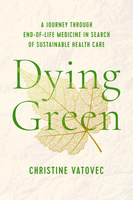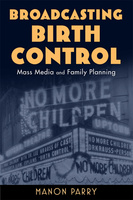When Roe Fell
How Barriers, Inequities, and Systemic Failures of Justice in Abortion Became Visible
In the aftermath of the fall of Roe, this volume offers readers the opportunity to reorient scholarship and understanding about abortion, recognizing what was already true before Roe was overturned and how losing the protections of Roe forced, enabled, and perhaps even facilitated a new era of abortion. Only by understanding the historical moment when Roe fell can we anticipate what might happen next in the ongoing social and political contention over reproductive autonomy and freedom.
The Nursing Clio Reader
Histories of Sex, Reproduction, and Justice
A powerful resource for classrooms and individual readers alike, The Nursing Clio Reader invites reflection on how the past informs current debates, urging us to engage deeply with the history of reproductive justice in a time of unprecedented change.
On the Frontlines of Crisis
Intensive Care and the Challenge of COVID-19
On the Frontlines of Crisis by Jason Rodriquez is a powerful and deeply human account of the experiences of healthcare workers during one of the most harrowing periods in modern history—the COVID-19 pandemic. As hospitals around the globe became overwhelmed by the influx of critically ill patients, those working in intensive care units (ICUs) were thrust into an unprecedented battle against a new, deadly virus about which little was understood. Rodriquez takes readers into the heart of two Massachusetts ICUs to learn about the people who put their lives on the line and faced unimaginable challenges as they treated critically ill patients at the peak of the pandemic.
Persisting Pandemics
Syphilis, AIDS, and COVID
Syphilis, AIDS, and COVID disprove any belief that scientific discoveries have ended the period of acute epidemic diseases that once defined 19th century life and replaced them with chronic cardiovascular diseases and cancers. Today, we cope with a greater array of epidemics than those who lived during the 19th century, even though we have the biomedical means to control them. Our cumulative experience with epidemic diseases, together with our attempts to eliminate them, remains a continued component of our existence.
The Sounds of Furious Living
Everyday Unorthodoxies in an Era of AIDS
The Sounds of Furious Living seeks to understand the AIDS activist tradition, identifying the historical currents out of which it arose. Embracing a patient-centered, social historical lens, it traces historic shifts in popular understanding of health and perceptions of biomedicine through the 19th and 20th centuries to explain the lasting appeal of unorthodox health activism into the modern era. In asking how unorthodox health activism flourished during the 20th century’s last major pandemic, Kelly also seeks to inform our understanding of resistance to biomedical authority in the setting of the 21st century’s first major pandemic: COVID-19. As a deeply researched portrait of distrust and disenchantment, The Sounds of Furious Living helps explain the persistence of movements that challenge biomedicine’s authority well into a century marked by biomedical innovation, while simultaneously posing important questions regarding the meaning and metrics of patient empowerment in clinical practice.
Bishops and Bodies
Reproductive Care in American Catholic Hospitals
Four out of the ten largest U.S. health care systems follow the policies of the U.S. Conference of Catholic Bishops that forbid abortion, sterilization, and related treatments in their hospitals. Drawing on rich interviews with patients and providers, Bishops and Bodies shows how these opaque restrictions conflict with medical standards, producing unjust and unequal reproductive care.
Mammography Wars
Analyzing Attention in Cultural and Medical Disputes
Mammography is a routine health screening performed 40 million times each year in the United States, yet it remains one of the most deeply contested topics in medicine. In Mammography Wars, sociologist Asia Friedman uses the sociology of attention to map the cognitive structure of the “mammography wars.”
Dying Green
A Journey through End-of-Life Medicine in Search of Sustainable Health Care
Dying Green considers the environmental costs of common healthcare practices, raising an urgent question: in striving to improve the health outcomes of individual patients, are we damaging human health on a global scale? Offering a comparative analysis of the care provided to terminally ill patients in different settings, it envisions a more sustainable approach to healthcare.
Abortion Care as Moral Work
Ethical Considerations of Maternal and Fetal Bodies
This anthology brings together the voices of abortion providers, counselors, clinic owners, neonatologists, bioethicists, and historians. Authors address the motivations that lead them to offer abortion care, discuss how anti-abortion regulations have made it increasingly difficult to offer feminist-inspired services, and ponder the ethical frameworks supporting abortion care and fetal research.
Importing Care, Faithful Service
Filipino and Indian American Nurses at a Veterans Hospital
Drawing on rich ethnographic and survey data collected over a four-year period, Cherry’s study explores the role Catholicism plays in shaping the professional and community lives of foreign-born Filipino and Indian American nurses. Their stories provide unique insights into the often-unseen roles race, religion, and gender play in the daily lives of new immigrants employed in American healthcare. Seeing nursing as a religious calling, they care for their patients with a sense of divine purpose but must also confront the cultural tensions and disconnects between how they were raised and trained in another country and the legal separation of church and state. How they cope with and engage these tensions plays an important role in not only shaping how they see themselves as Catholic nurses, but their place in the new American story.
Embodied Politics
Indigenous Migrant Activism, Cultural Competency, and Health Promotion in California
Carrying On
Another School of Thought on Pregnancy and Health
Pink and Blue
Gender, Culture, and the Health of Children
From Residency to Retirement
Physicians' Careers over a Professional Lifetime
Bodies Unbound
Gender-Specific Cancer and Biolegitimacy
Nursing the Nation
Building the Nurse Labor Force
An Organ of Murder
Crime, Violence, and Phrenology in Nineteenth-Century America
False Dawn
The Rise and Decline of Public Health Nursing
Exhibiting Health
Public Health Displays in the Progressive Era
The Love Surgeon
A Story of Trust, Harm, and the Limits of Medical Regulation
Talking Therapy
Knowledge and Power in American Psychiatric Nursing
Pyrrhic Progress
The History of Antibiotics in Anglo-American Food Production
Healthcare and Human Dignity
Law Matters
Medicine over Mind
Mental Health Practice in the Biomedical Era
Toxic Exposures
Mustard Gas and the Health Consequences of World War II in the United States
When the Air Became Important
A Social History of the New England and Lancashire Textile Industries
Lost
Miscarriage in Nineteenth-Century America
Prelude to Hospice
Florence Wald, Dying People, and their Families
Children and Drug Safety
Balancing Risk and Protection in Twentieth-Century America
Rest Uneasy
Sudden Infant Death Syndrome in Twentieth-Century America
Lady Lushes
Gender, Alcoholism, and Medicine in Modern America
Eating to Learn, Learning to Eat
The Origins of School Lunch in the United States
Frederick Novy and the Development of Bacteriology in Medicine
Nursing with a Message
Public Health Demonstration Projects in New York City
Communities of Health Care Justice
Selling Science
Polio and the Promise of Gamma Globulin
Transplanting Care
Shifting Commitments in Health and Care in the United States
Privacy and the Past
Research, Law, Archives, Ethics
American Catholic Hospitals
A Century of Changing Markets and Missions
Smoking Privileges
Psychiatry, the Mentally Ill, and the Tobacco Industry in America
Managing Madness in the Community
The Challenge of Contemporary Mental Health Care
American Melancholy
Constructions of Depression in the Twentieth Century
War and Disease
Biomedical Research on Malaria in the Twentieth Century
A massive undertaking, the antimalarial program was to biomedical research what the Manhattan Project was to the physical sciences.
A volume in the Critical Issues in Health and Medicine series, edited by Rima D. Apple and Janet Golden.
Saving Sickly Children
The Tuberculosis Preventorium in American Life, 1909-1970
Tainted Earth
Smelters, Public Health, and the Environment
Thoroughly grounded in extensive archival research, Tainted Earth traces the rise of public health concerns about nonferrous smelting in the western United States, focusing on three major facilities: Tacoma, Washington; El Paso, Texas; and Bunker Hill, Idaho. It documents the response from community residents, public health scientists, the industry, and the government to pollution from smelters and the long road to protecting public health and the environment.
Tainted Earth
Smelters, Public Health, and the Environment
Thoroughly grounded in extensive archival research, Tainted Earth traces the rise of public health concerns about nonferrous smelting in the western United States, focusing on three major facilities: Tacoma, Washington; El Paso, Texas; and Bunker Hill, Idaho. It documents the response from community residents, public health scientists, the industry, and the government to pollution from smelters and the long road to protecting public health and the environment.
The Business of Private Medical Practice
Doctors, Specialization, and Urban Change in Philadelphia, 1900-1940
Health care is more expensive in the United States than in other wealthy nations, and access varies significantly across space and social classes. In this case study, James A. Schafer Jr. uses the city of Philadelphia in the early twentieth-century to show that these problems reflect the informal organization of health care in a free market system in which profit and demand, rather than social welfare and public health needs, direct the distribution and cost of crucial resources.
Classrooms and Clinics
Urban Schools and the Protection and Promotion of Child Health, 1870-1930
Classrooms and Clinics is the first book-length assessment of the development of public school health policies from the late nineteenth century through the early years of the Great Depression. Richard A. Meckel examines the efforts of early twentieth-century child health care advocates and reformers to utilize urban schools to deliver health care services to socioeconomically disadvantaged and medically underserved children in the primary grades to improve children’s health and thereby improve their academic performance.
Broadcasting Birth Control
Mass Media and Family Planning
Traditionally, the history of the birth control movement has been told through the accounts of the leaders, organizations, and legislation that shaped the campaign. Historians have recently begun examining the cultural work of printed media, including newspapers, magazines, and novels in fostering support for the cause. This book builds upon this new scholarship on the women’s reproductive health movement to explore the films and radio and television broadcasts developed by twentieth-century birth control advocates to promote family planning in the U.S. and internationally.
Mapping "Race"
Critical Approaches to Health Disparities Research
The essays in this unique book argue for the inclusion of race as a social construction in the design of large-scale data collection efforts and how scientists must utilize race in the context of specific research questions. This landmark collection concludes on a prescriptive note, providing an arsenal of multidisciplinary, conceptual, and methodological tools for studying race specifically within the context of health inequalities.

















































